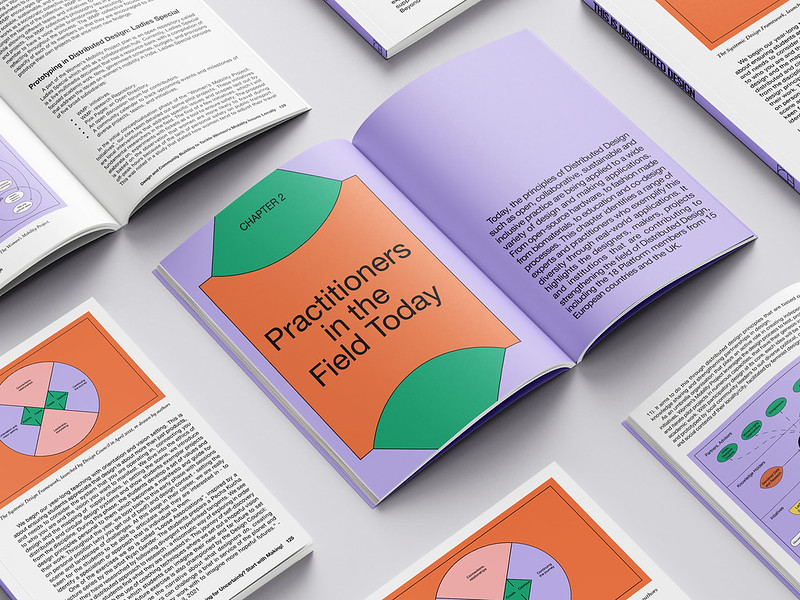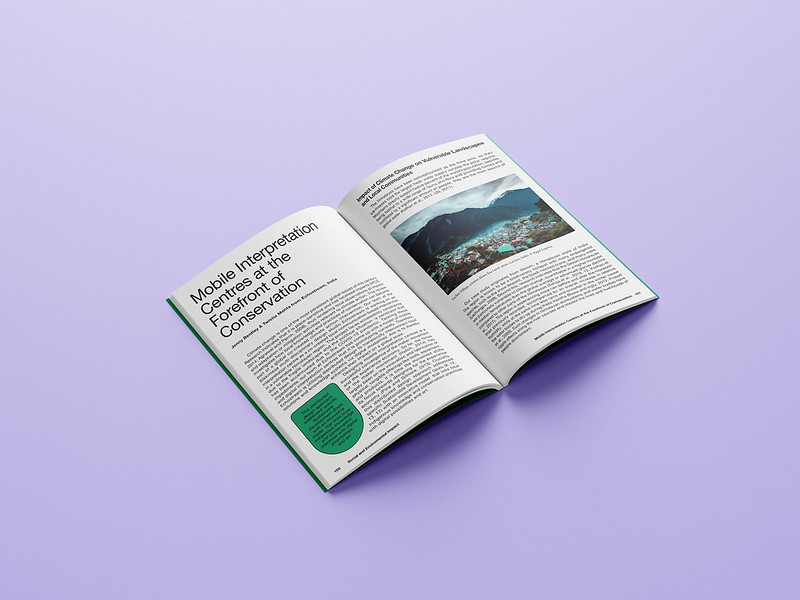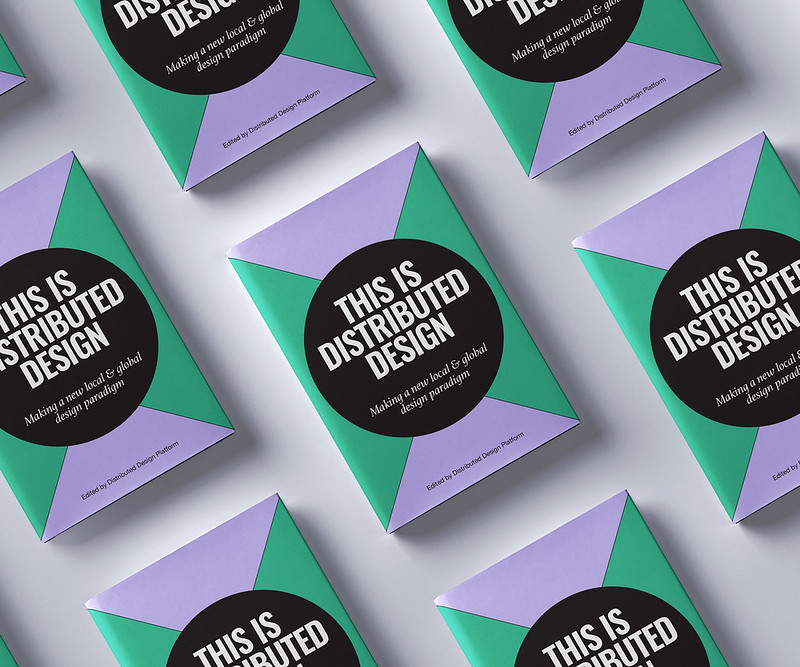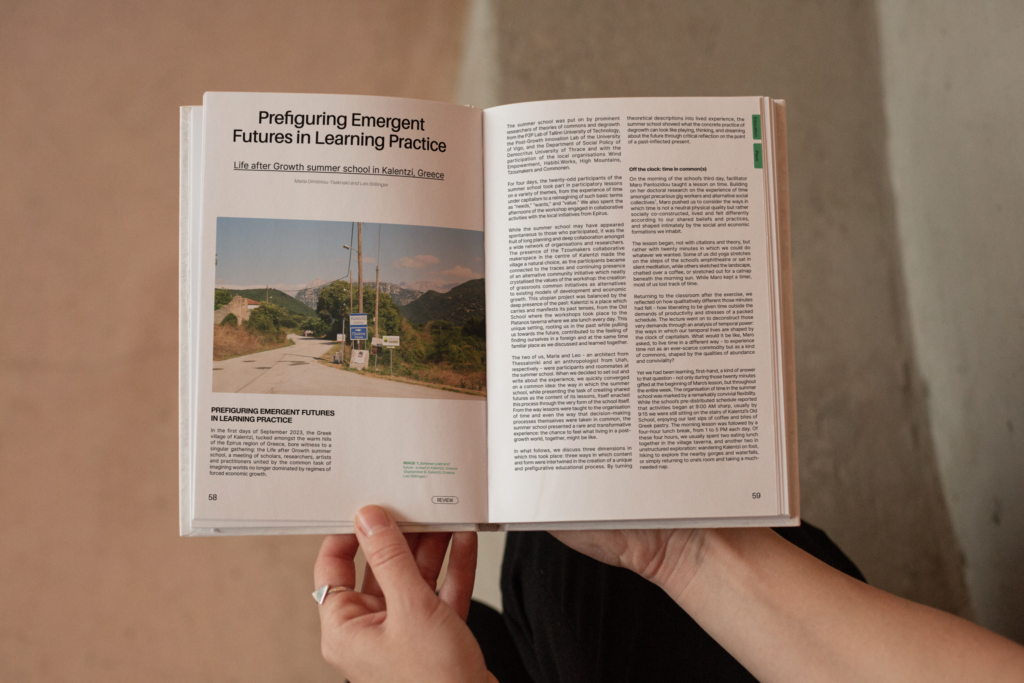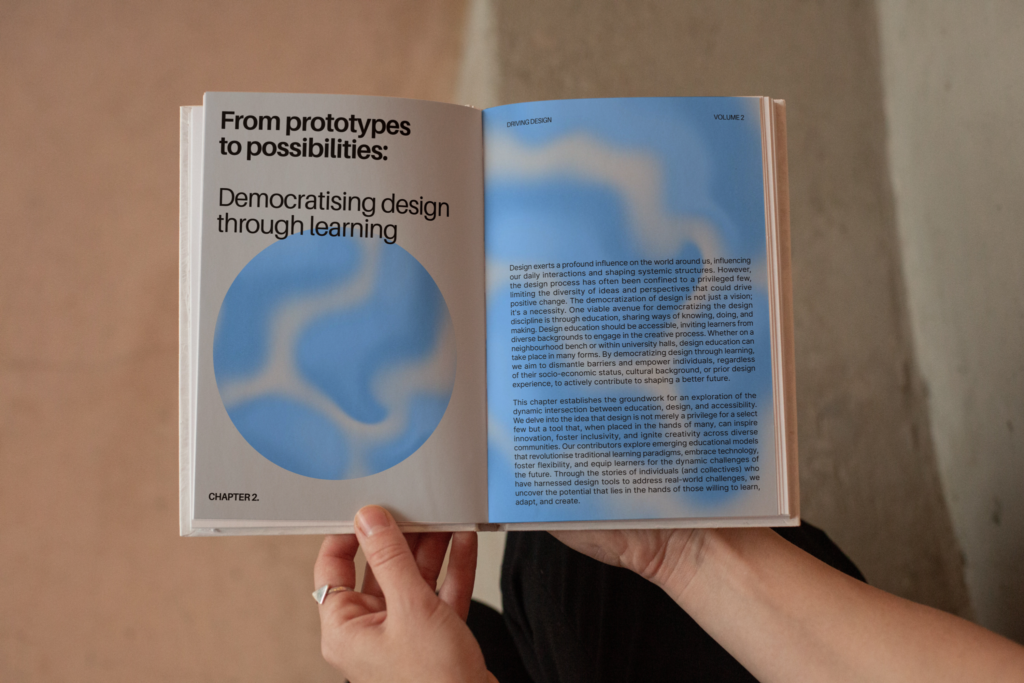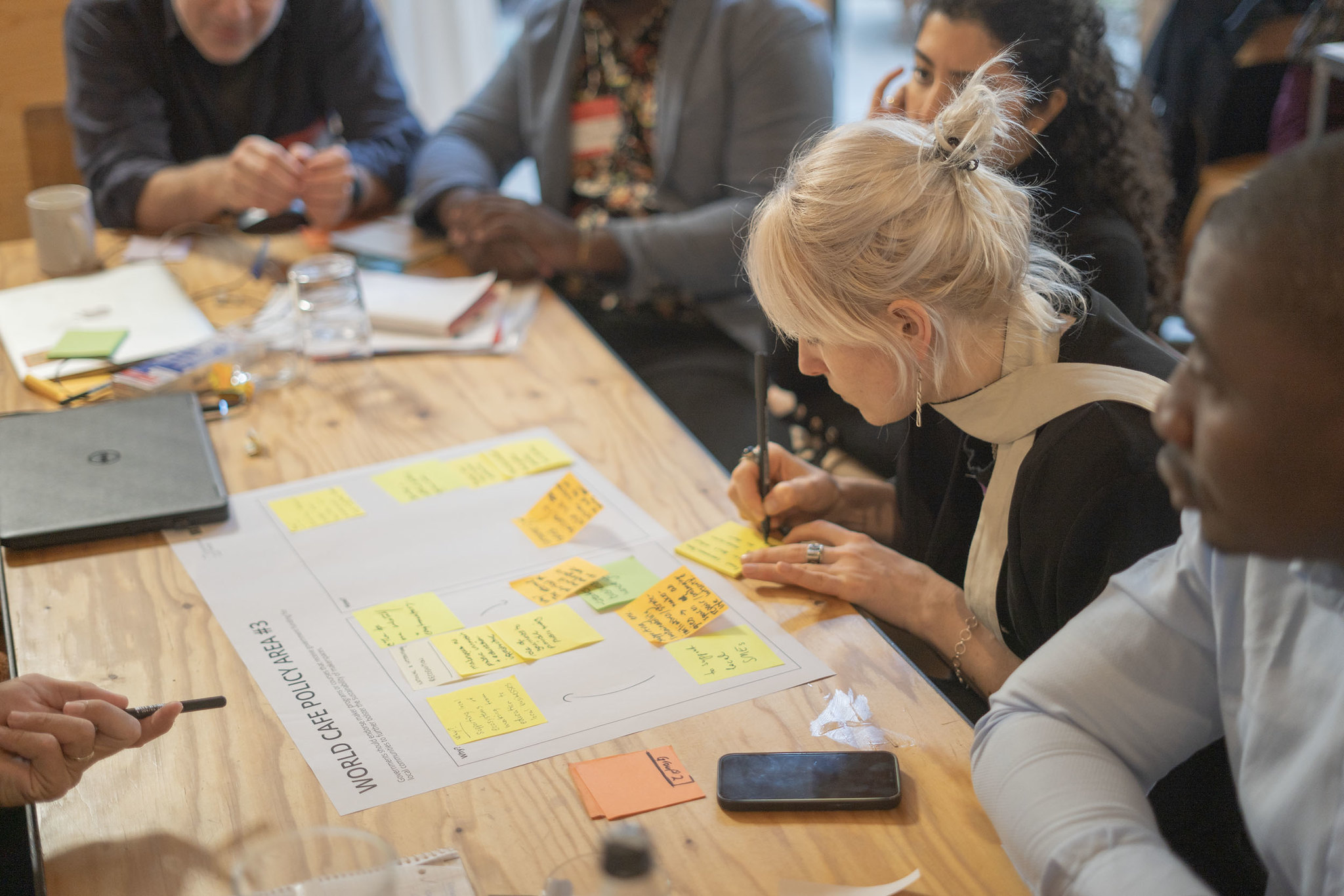What is Distributed Design?
Our values
-
Open
Open refers to the mentality and approach of designers to share and make their design processes transparent, replicable, and accessible, from hardware and software to implementation and usability.
-
Collaborative
Collaborative means enabling citizens to become active participants in the design process through meaningful and participatory co-design approaches.
-
Regenerative
Regenerative making and design principles aspire to renew and restore the systems that we are part of, rather than just replacing or devaluing them.
-
Ecosystemic
Ecosystemic means acknowledging the complexity of interactions between cultural, natural, and social aspects and designing to improve the health of social and environmental systems.
How to become part of the community?
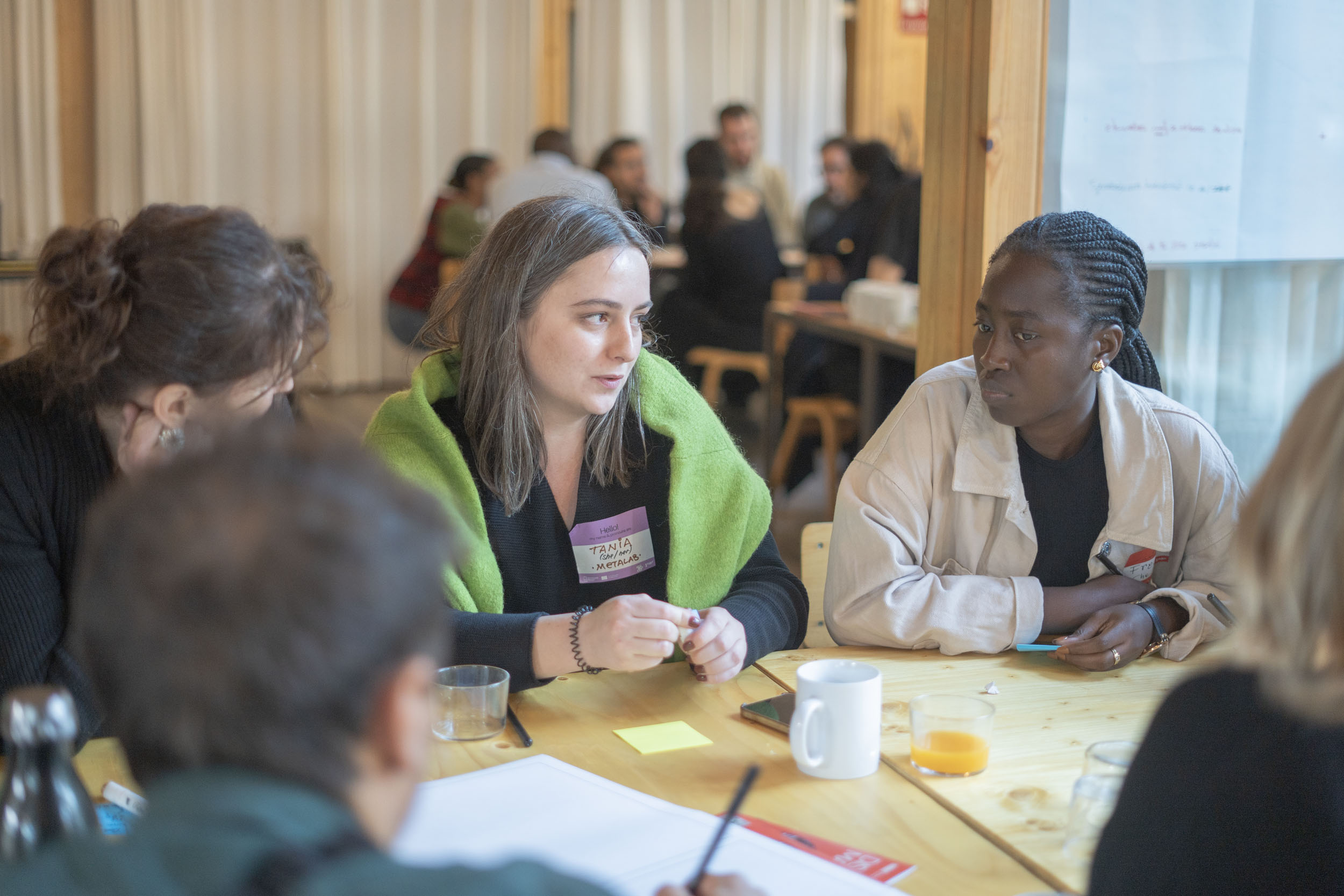
Members
Our platform comprises over 20 members collaborating on the emerging field of Distributed Design. Discover more about our members and learn how you can become part of the ecosystem by clicking here.
Read more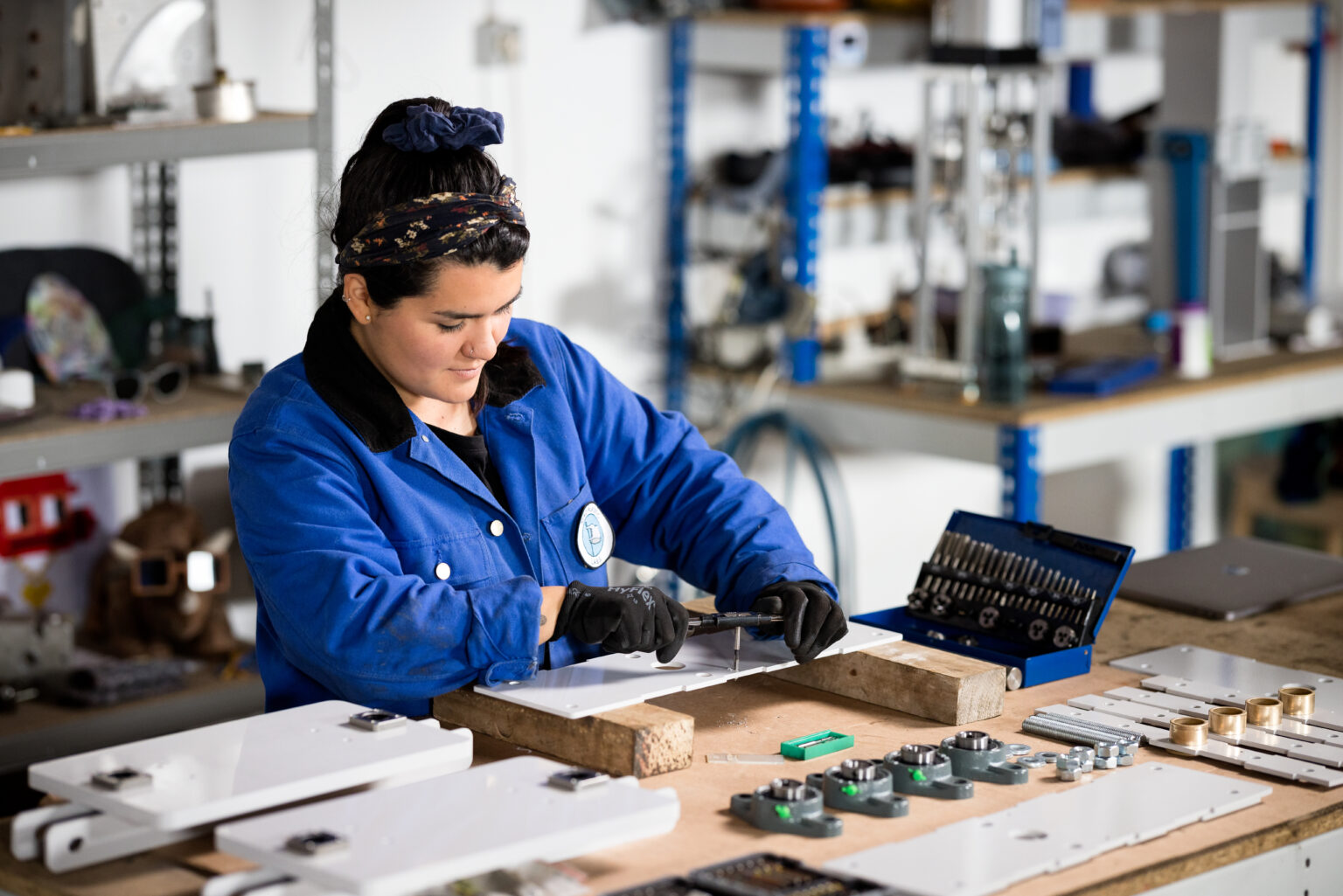
Creatives
We take pride in our constantly growing network of creatives who adopt open, collaborative, inclusive and regenerative design practices. Join a devoted community of distributed designers from all over the world here.
Read more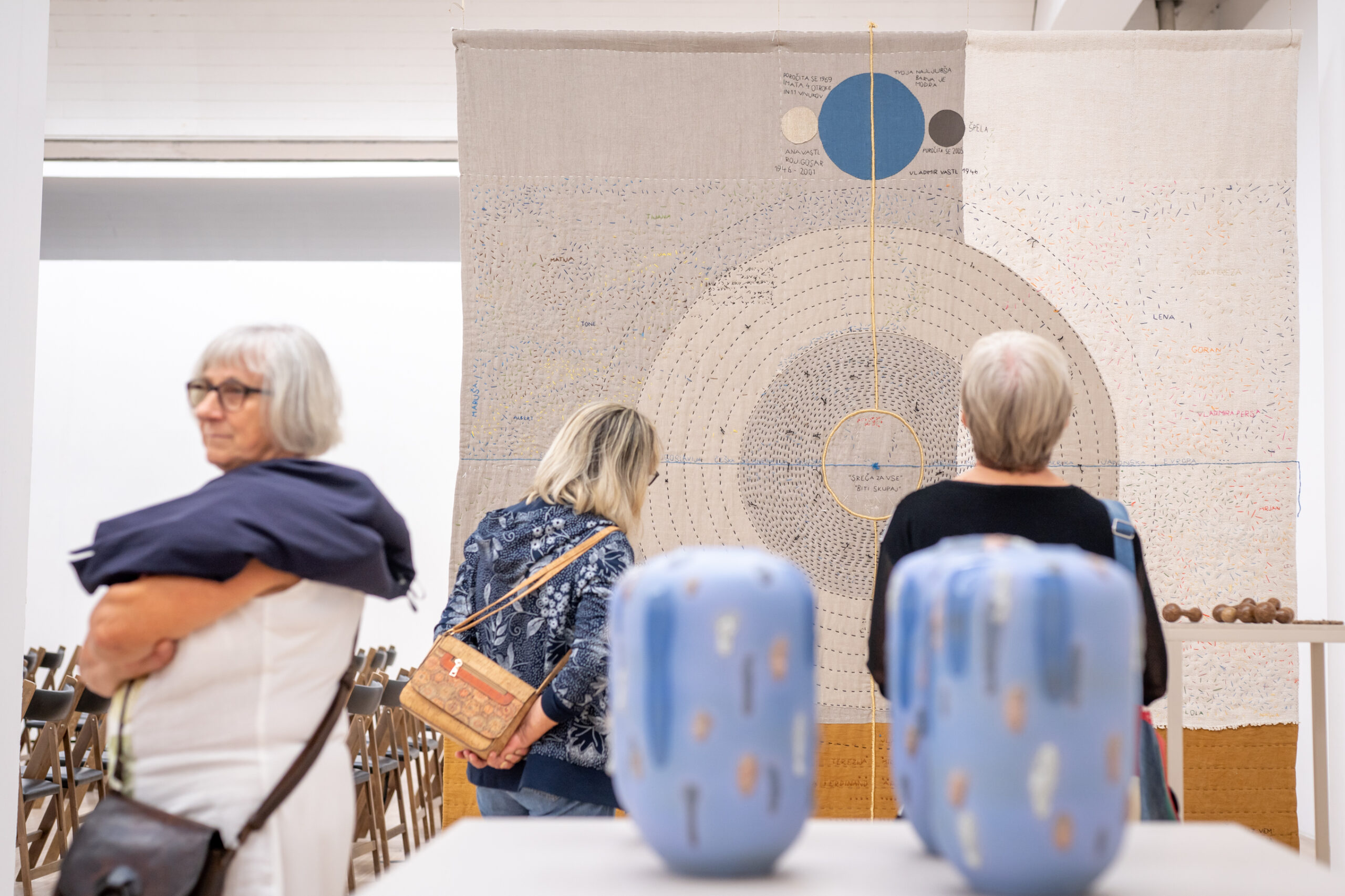
Strategic partners
We collaborate with organizations of all sizes, aiming to help them connect with a broader creative audience and achieve various scalable outcomes. These outcomes include creative and digital skill development, immersive learning experiences, and initiatives promoting circular and inclusive design.
Read moreImpact
Our achievements over the past three years would not have been possible without the dedication of our 20 members and our vibrant network of Creative Talents. Their work demonstrates an unshakeable commitment to design rooted in environmental and social principles. Practices regularly go beyond sustainability to regeneration: our community asks not only how can we sustain, but how can our design practices give back and nurture cultural, social, and environmental well-being.
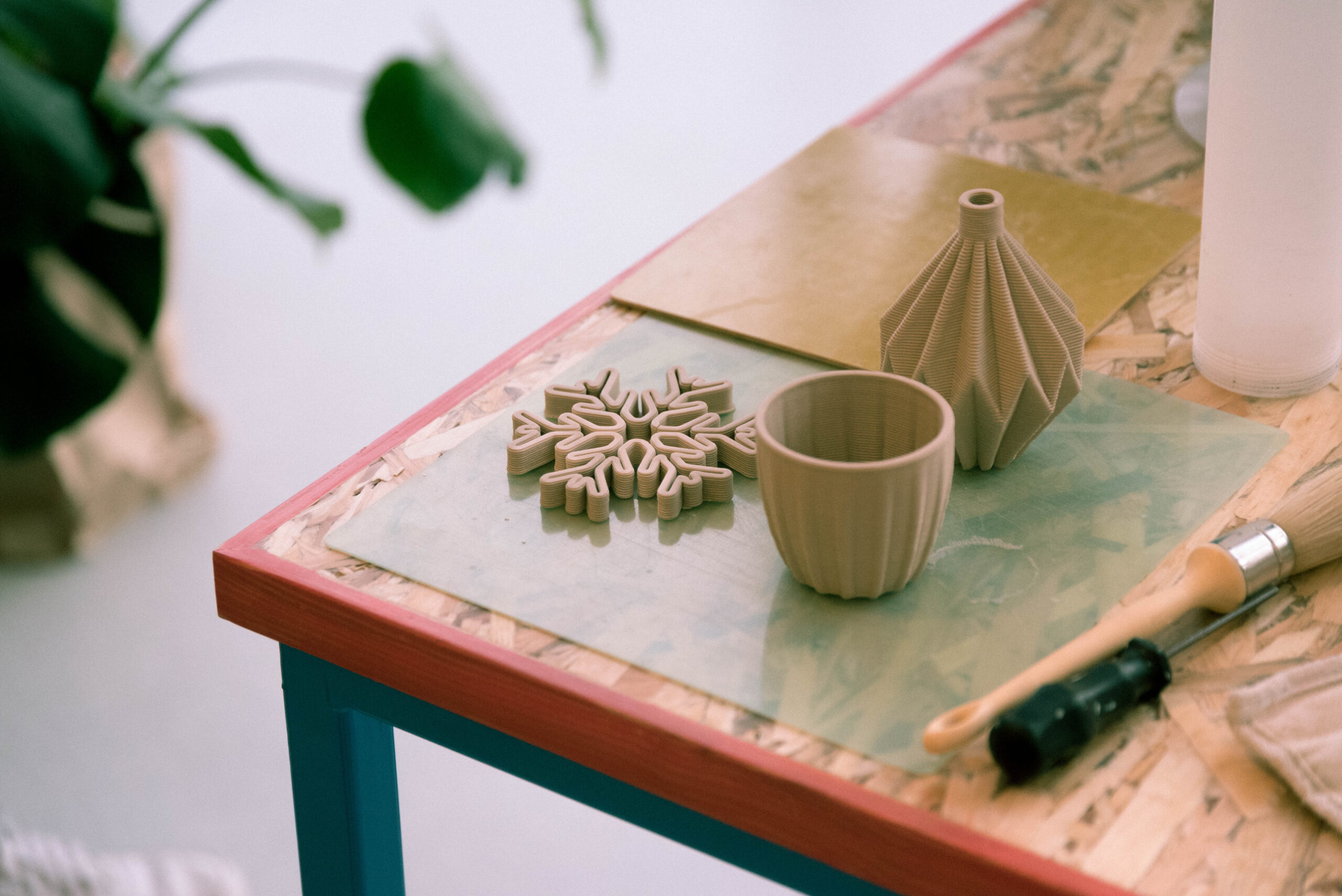
Advisory board
The Advisory Board provides experience and knowledge to the development of the Platform. It meets two times a year with the members of the project, and where possible they also participate in other events organised by the Platform.
-
 Indy Johar
Indy JoharMission Steward
Dark Matter Labs
-
 Primavera De Filippi
Primavera De FilippiResearcher at CNRS and Berkman-Klein Center
-
 Daniel Charny
Daniel CharnyFounder & Director at Forth
-
 Liza Chong
Liza ChongFounder & Director
Design Impact Fund II
-
 Nadya Peek
Nadya PeekDirector Machine Agency
-
 Guillaume Charny-Brunet
Guillaume Charny-BrunetCo-founder of SPACE10
-
 Tomas Diez
Tomas DiezExecutive Director
Fab City Foundation
-
 Kate Armstrong
Kate ArmstrongExecutive Director Interspecies Internet
Distributed design in numbers
Check our impactCreative Talents
+690
Our achievements over the past years would not have been possible without the dedication of our 20 members and our vibrant network of Creative Talents. Their work demonstrates an unshakeable commitment to design rooted in environmental and social principles. Practices regularly go beyond sustainability to regeneration: our community asks not only how can we sustain, but how can our design practices give back and nurture cultural, social, and environmental well-being.
Core Members
28
Our Platform has seen exciting growth since our start. Since 2022, our membership has steadily increased: the Distributed Design Platform is now made up of 22 members including 6 community hubs. These hubs act as regional centers, fostering connections and knowledge exchange among members with diverse backgrounds and expertise. This geographically distributed network allows for more inclusive participation and ensures that the Platform serves the needs of a wider community.
Global Community
+5900
The Distributed Design Platform acts as an exchange and networking hub for the emerging field of distributed design. The initiative aims at developingand promoting the connection between designers, makers and emerging digital and local markets.
Cross-channel reach
+300k
The DDP website is our primary outreach tool, attracting over 14,000 annual visitors and accounting for 80% of our online engagement and making it our most effective platform. Social media platforms, particularly Instagram (13% of our online outreach), complement this reach.
Who is involved?
The Distributed Design Platform is built upon a unique and highly experienced consortium of 26 members from 15 countries. The project is coordinated by Fab Lab Barcelona and supported in the scientific and technical coordination by IAAC.
As Denmark’s national design centre, it is the DDC’s mission to promote the use of design in business and industry, to help professionalise the design industry and to document, promote and brand Danish design in Denmark and abroad. In other words, the DDC aims to ensure the best possible meeting between the supply and demand sides in the design field. The DDC’s key approach in this encounter is systematic experimentation with design-based value creation in companies.
Lorem ipsum dolor sit amet, consectetur adipiscing elit. Ut sed nisi sit amet dolor consequat sagittis eu quis erat. Sed vitae tincidunt ipsum. Sed et feugiat lacus, nec facilisis erat. Maecenas eu tempor mauris. Nunc sodales gravida massa, ac rutrum enim suscipit quis. Nunc tempus elementum sem sed venenatis. Quisque sodales, lorem sed lobortis mattis, erat erat bibendum eros, in sollicitudin risus magna vel eros. Quisque mattis mauris leo. Nunc consequat enim quis eros egestas, ut cursus turpis convallis. Maecenas ullamcorper in eros vel pulvinar. Nulla id urna sem. Etiam quis bibendum metus.
Since 2010, Happylab is Austria’s first Fab Lab. Learning from each other is an important point in the Happylab community. In addition to the physical meeting place provided for joint working and tinkering, a web-based forum and a wiki page also offer the opportunity to exchange experiences. The Happylab is an interdisciplinary entry point for all who have creative and/or technological project ideas. It is embedded within a framework of universities, business incubators, specialised SMEs, industries to provide the lab users with services when their idea grows beyond the scope of the lab.
Lorem ipsum dolor sit amet, consectetur adipiscing elit. Ut sed nisi sit amet dolor consequat sagittis eu quis erat. Sed vitae tincidunt ipsum. Sed et feugiat lacus, nec facilisis erat. Maecenas eu tempor mauris. Nunc sodales gravida massa, ac rutrum enim suscipit quis. Nunc tempus elementum sem sed venenatis. Quisque sodales, lorem sed lobortis mattis, erat erat bibendum eros, in sollicitudin risus magna vel eros. Quisque mattis mauris leo. Nunc consequat enim quis eros egestas, ut cursus turpis convallis. Maecenas ullamcorper in eros vel pulvinar. Nulla id urna sem. Etiam quis bibendum metus.
(IAAC)
The Institute for Advanced Architecture of Catalonia (IAAC) is a center for research, education, production and outreach, with the mission of envisioning the future habitat of our society and building it in the present. IAAC follows the digital revolution at all scales (from bits to geography, from micro-controllers to cities, from materials to the territory) to expand the boundaries of architecture and design and meet the challenges faced by humanity. IAAC hosts Fab Lab Barcelona, the first and most advanced digital production laboratory in EU.
Lorem ipsum dolor sit amet, consectetur adipiscing elit. Ut sed nisi sit amet dolor consequat sagittis eu quis erat. Sed vitae tincidunt ipsum. Sed et feugiat lacus, nec facilisis erat. Maecenas eu tempor mauris. Nunc sodales gravida massa, ac rutrum enim suscipit quis. Nunc tempus elementum sem sed venenatis. Quisque sodales, lorem sed lobortis mattis, erat erat bibendum eros, in sollicitudin risus magna vel eros. Quisque mattis mauris leo. Nunc consequat enim quis eros egestas, ut cursus turpis convallis. Maecenas ullamcorper in eros vel pulvinar. Nulla id urna sem. Etiam quis bibendum metus.
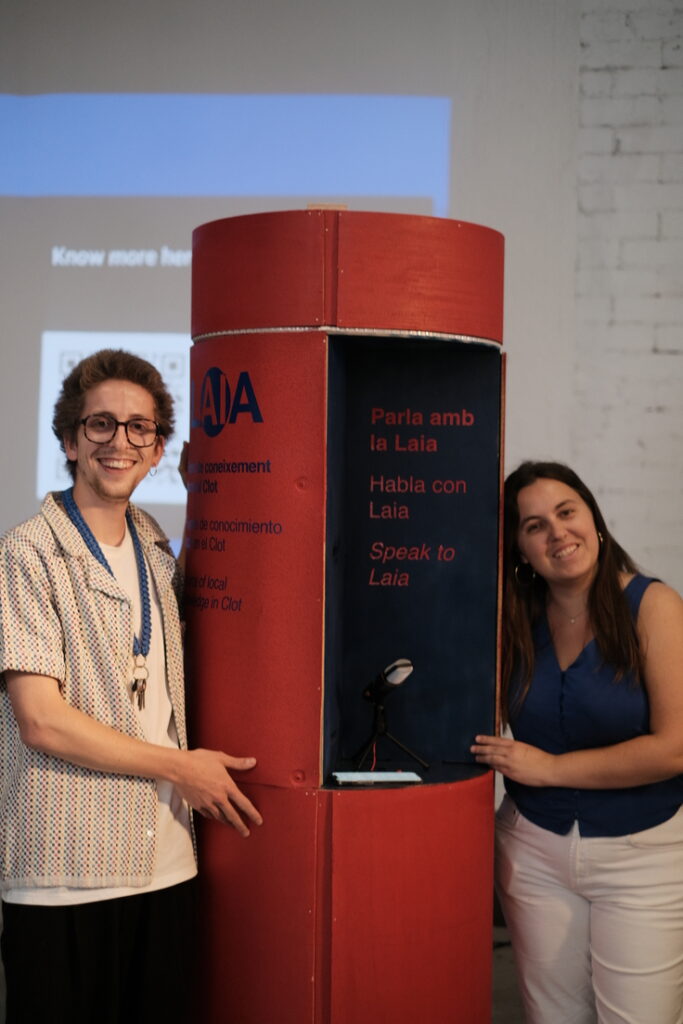
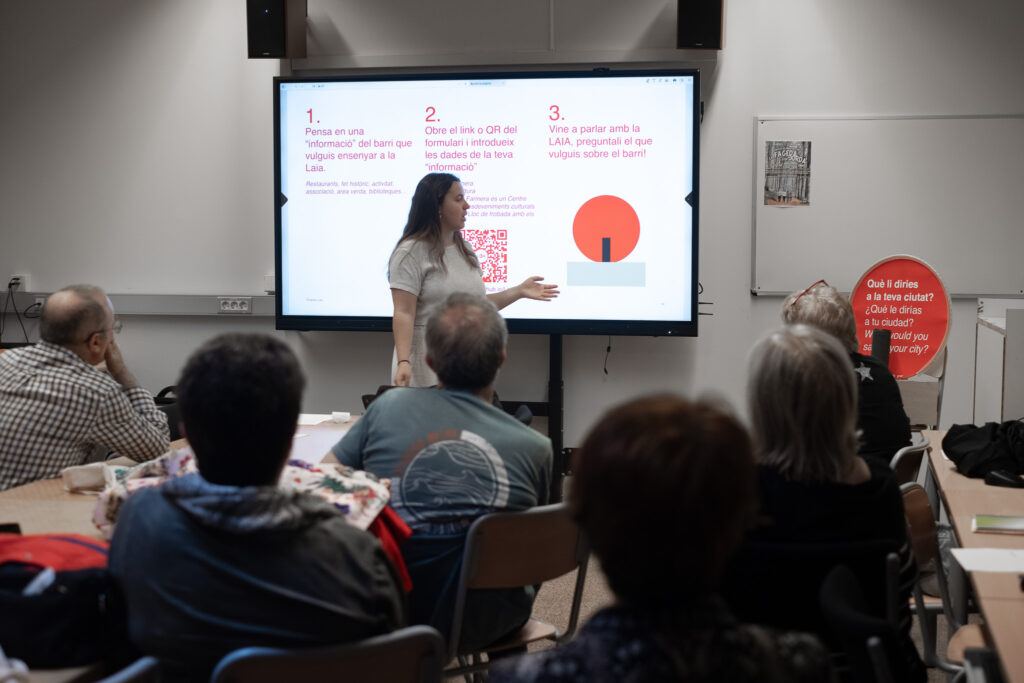
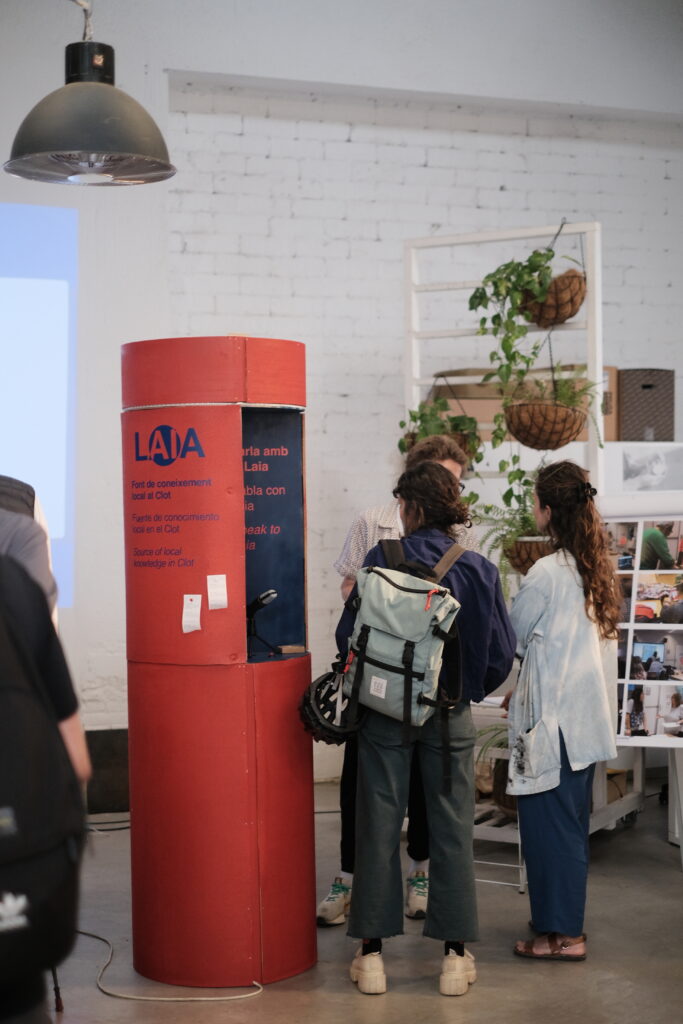
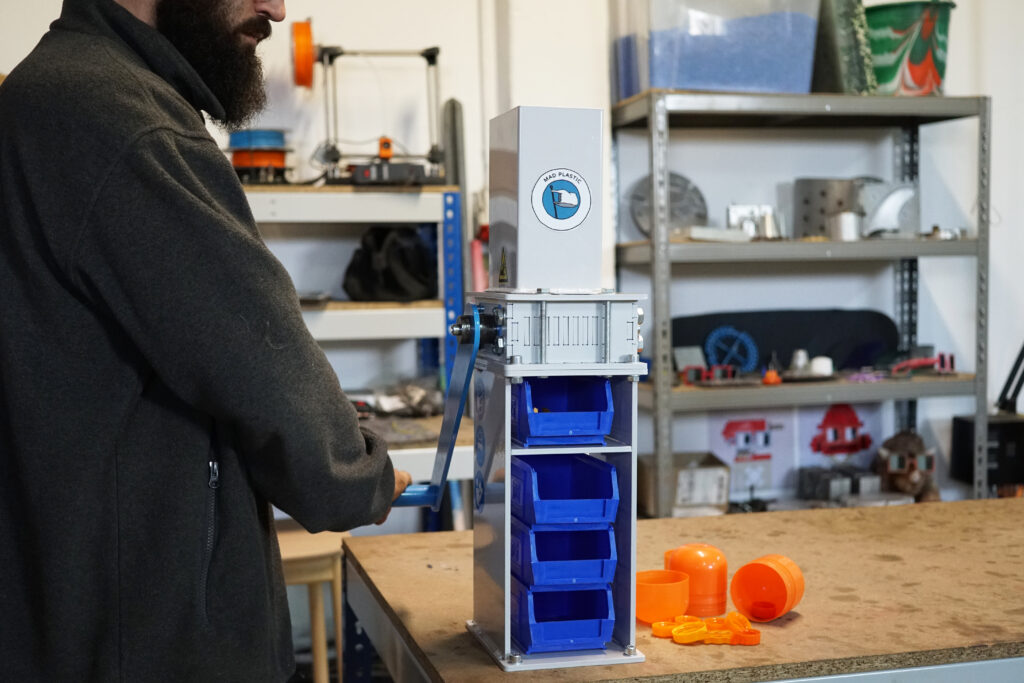
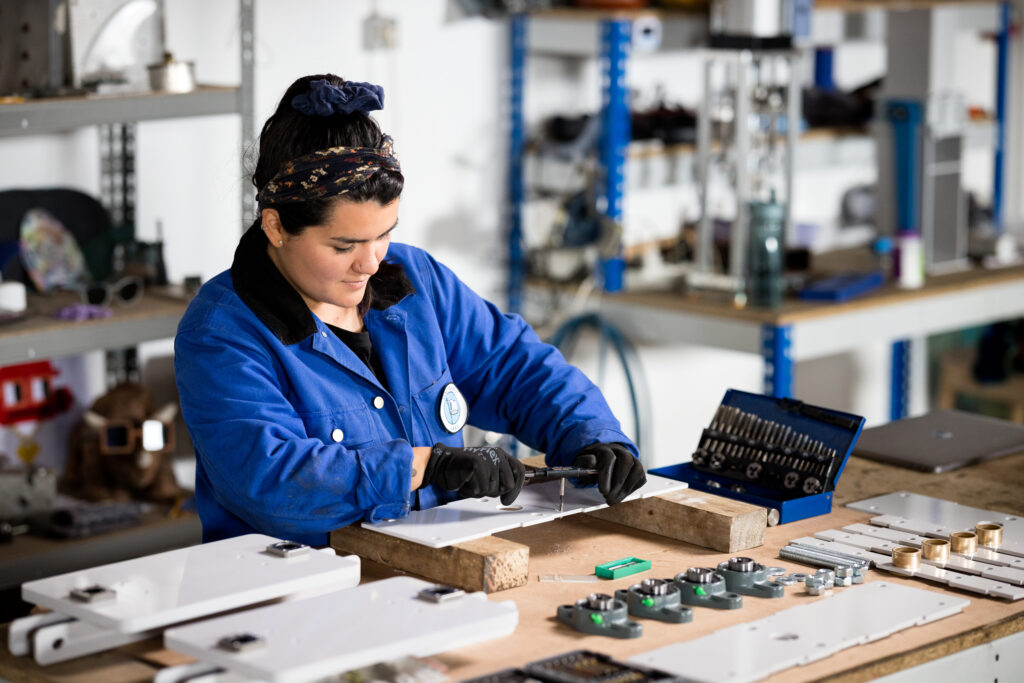
Maker is a non-profit association working to foster and test the knowledge, technology, and practices of maker culture. It establishes partnerships and collaborates with peers in the maker community, and organizations from the industry, educational and civic society field on knowledge projects and activities that communicate, broaden and engage a broad target group of citizens in activities around technological trends and tendencies, and hands on making.
Lorem ipsum dolor sit amet, consectetur adipiscing elit. Ut sed nisi sit amet dolor consequat sagittis eu quis erat. Sed vitae tincidunt ipsum. Sed et feugiat lacus, nec facilisis erat. Maecenas eu tempor mauris. Nunc sodales gravida massa, ac rutrum enim suscipit quis. Nunc tempus elementum sem sed venenatis. Quisque sodales, lorem sed lobortis mattis, erat erat bibendum eros, in sollicitudin risus magna vel eros. Quisque mattis mauris leo. Nunc consequat enim quis eros egestas, ut cursus turpis convallis. Maecenas ullamcorper in eros vel pulvinar. Nulla id urna sem. Etiam quis bibendum metus.
